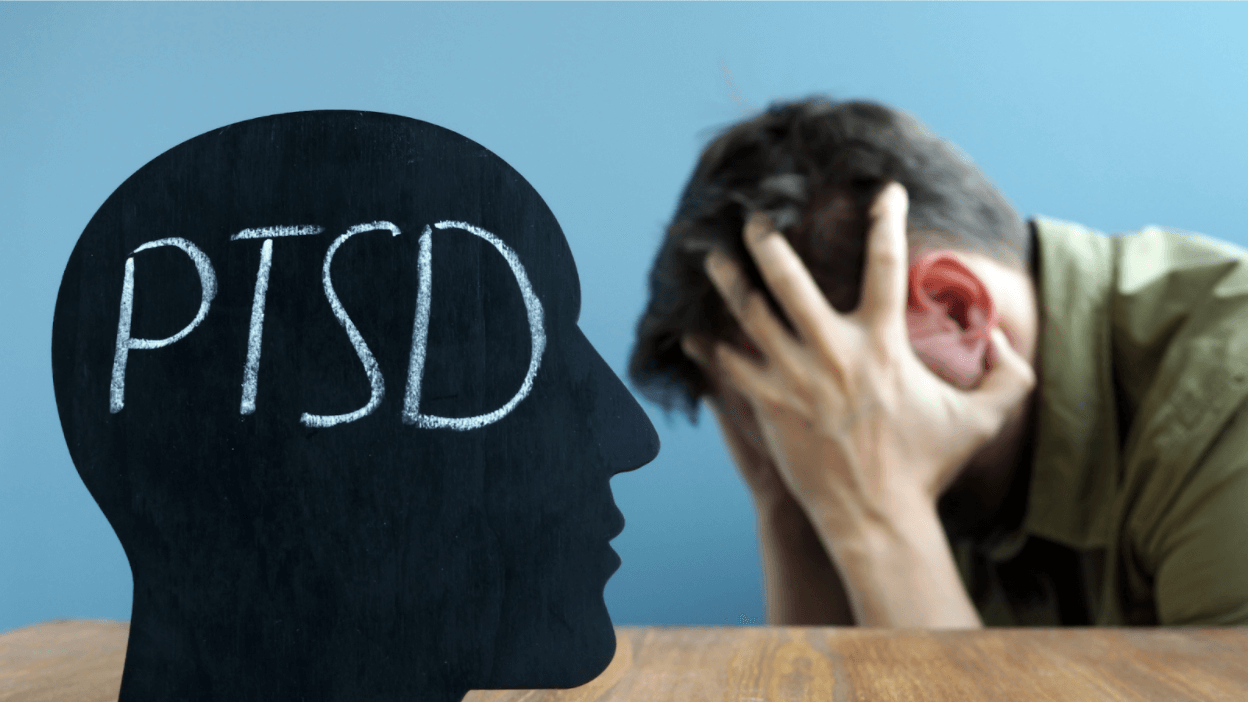 Mental health disorders can be difficult to understand and even more difficult to talk about. In today's society, mental health is often stigmatized. Many people believe that it doesn't exist or that if you have a mental illness you are "crazy."
This is not the case. Mental illnesses are real and they deserve to be treated with the same respect as physical conditions such as diabetes or cancer. In this blog post, we will discuss common myths about mental health and how those myths can
negatively affect someone living with a mental illness.
Mental health disorders can be difficult to understand and even more difficult to talk about. In today's society, mental health is often stigmatized. Many people believe that it doesn't exist or that if you have a mental illness you are "crazy."
This is not the case. Mental illnesses are real and they deserve to be treated with the same respect as physical conditions such as diabetes or cancer. In this blog post, we will discuss common myths about mental health and how those myths can
negatively affect someone living with a mental illness.
Fact: Although they are not often talked about publicly, over 40 million Americans live with mental illnesses. In fact, mental health conditions collectively account for the most common health conditions in the United States.
The most common mental health conditions are generalized anxiety disorder, major depressive disorder and post-traumatic stress disorder.
Some people who struggle with mental health disorders will either attempt or commit suicide. Suicide is the 10th leading cause of death in the United States. In the United States alone, 41,000 Americans commit suicide each year, which is more than double the number of lives lost to homicide.
It is likely that you know one—or even many—people who are struggling with anxiety or depression. Keep this in mind as you interact with others daily. A small act of kindness often goes a long way for someone who is struggling.
Fact: There are many times when someone with mental health issues may feel better, but that doesn't mean they will be able to "snap out of it" completely. Unfortunately, mental health disorders are often never "cured," but something that a person will need to manage indefinitely.
A person’s mental health CAN change over time, depending on many factors. Changes in life situations such as job stress, the loss of a loved one or financial difficulties can contribute to the ups and downs that a person may experience over the course of their lifetime. A combination of talk therapy, medication and exercise many help alleviate symptoms for some people.
 Fact: Depression, anxiety, ADHD and PTSD, among others, are mental health disorders that affects people of all ages and backgrounds. Just like other chronic illnesses, no one is exempt from these illnesses, no matter your age.
Fact: Depression, anxiety, ADHD and PTSD, among others, are mental health disorders that affects people of all ages and backgrounds. Just like other chronic illnesses, no one is exempt from these illnesses, no matter your age.
Mental health problems in children may cause serious changes in their typical behavior, learning patterns, and mood swings. These issues can affect the way they experience life, often causing distress and difficulty experiencing joy.
Children who have experienced trauma are especially prone to anxiety, which often manifests in what we perceive as "behavior disorders." Children may act out around new adults that they don't yet trust, or they may display behaviors such as crying, yelling or throwing tantrums when they are scared or uncomfortable in certain situations.
While parents play an important role in the mental and emotional health of their children, genetics also play a significant role when it comes to influencing someone's risk for developing mental illness.
 Fact: Post Traumatic Stress Disorder (PTSD) is a mental health disorder that occurs in people who have experienced or witnessed an act of trauma or multiple traumatic events. While PTSD is common among war veterans, it can occur in any person who
has experienced trauma. This can include assault, domestic violence, natural disasters, the unexpected loss of a loved one, and more. In fact, it is estimated that 1 in 11 people will experience PTSD in their lifetime.
Fact: Post Traumatic Stress Disorder (PTSD) is a mental health disorder that occurs in people who have experienced or witnessed an act of trauma or multiple traumatic events. While PTSD is common among war veterans, it can occur in any person who
has experienced trauma. This can include assault, domestic violence, natural disasters, the unexpected loss of a loved one, and more. In fact, it is estimated that 1 in 11 people will experience PTSD in their lifetime.
Those who suffer from PTSD often do so in silence, either for fear of being stigmatized or because they find it too difficult to tell others about the trauma they have experienced. You may even know several people who are silently suffering from PTSD.
A person who witnessed repeated domestic violence as a child may suffer from PTSD and have a hard time trusting others.
A person who has experienced sexual assault may suffer from PTSD and struggle to sustain healthy romantic relationships.
A person who survived a natural disaster may suffer from PTSD and experience flashbacks of the event.
A person who experienced the unexpected loss of a loved one may suffer from PTSD and develop irrational fears of dying or losing other loved ones.
It is important to understand that all of these circumstances are traumatic, but they do not make the victim weak for having survived them—rather, it takes incredible strength to survive these events and live with the effects on a daily basis.
People with mental health disorders should not be stigmatized or ostracized. They are human beings just like anyone else and deserve to have people around them who understand, care about them and who will stand by their side.
Often people who commit or attempt suicide do so because they feel like they are a burden to their loved ones and that the world would be a better place without them. So while it may seem like a selfish act to those who are left behind, most people do not take their own lives out of malicious intent to others.
Different psychological and emotional difficulties respond differently to various treatments and finding the right combination of treatments can be a long battle of trial and error. The American Psychological Association recommends a combination of cognitive-behavioral therapy (CBT) along with antidepressant or anti-anxiety medications as the most effective (and backed by science) approach to treating anxiety and depression.
For those who struggle with addiction, substance use disorders or eating disorders, it is recommended to seek medical assistance from a doctor alongside psychotherapy.
Sometimes depression or anxiety are related to short-term life circumstances such as struggles in a relationship or financial struggles. Doctors may prescribe medication for a short period of time, and patients may be able to wean off medication over time as circumstances change. People may choose to continue with talk therapy as a preventative treatment or as maintenance even after they discontinue the use of medications.
Fact: People with mental health disorders are not more violent or dangerous than those without mental health disorders. Studies show that on average, 3.7% of the general U.S. population will commit a violent crime in their lifetime. In studies of those with mental health problems, 4% will commit a violent crime. Additionally, people that have access to treatment and support for their mental illness are less likely to commit crimes.
Violence in the media often brings a lot of attention, especially when it involves those with mental illness and/or previous trauma. This practice of sensationalizing violent crimes committed by those with mental health problems creates an unrealistic perception that they are more likely to be dangerous than those who do not struggle with mental health.
For people who suffer from depression, it can be hurtful to assume that they are “lazy,” especially because often, the opposite is actually true. One cause of depression is chemical imbalances in the brain which make it incredibly difficult to complete everyday tasks like putting the dishes away, keeping the house clean, or making it out the door to attend a social event. So while it may seem like the person is "just being lazy," they often have to work incredibly hard to complete basic tasks that others do on auto-pilot.
People who are experiencing bouts of depression may oversleep or find themselves resting frequently throughout the day. This is because their brains are working overtime to combat chemical imbalances. It requires a lot of extra energy to complete everyday tasks, often leaving the person exhausted by the end of the day.
Although SOME people with major depressive disorder or extreme anxiety disorders are unable to work or hold a steady job, this is not the case in the majority of people who struggle with their mental health. Most people live with their struggles silently and cope with them effectively while going about their everyday lives. In fact, many people who suffer from bipolar disorder are high-achieving individuals and often accomplish incredible things throughout their lifetime.
 All-in-all, mental health disorders are not something to be ashamed of. They can happen to anyone and they do not make you weak or less valuable as a person. Those who struggle with their mental health deserve treatment with dignity and respect
just like anyone else who struggles with an illness.
All-in-all, mental health disorders are not something to be ashamed of. They can happen to anyone and they do not make you weak or less valuable as a person. Those who struggle with their mental health deserve treatment with dignity and respect
just like anyone else who struggles with an illness.
As more people begin to speak out about their struggles, the stigmas around mental health are slowly beginning to decrease. The more people who are willing to publicly share their journeys, we may begin to see people find the courage to reach out for help without feeling that they will be ostracized or criticized by their loved ones.
The Substance Abuse and Mental Health Services Administration has a free, confidential helpline that is accessible for anyone. The hotline number is 1-800-622-HELP.